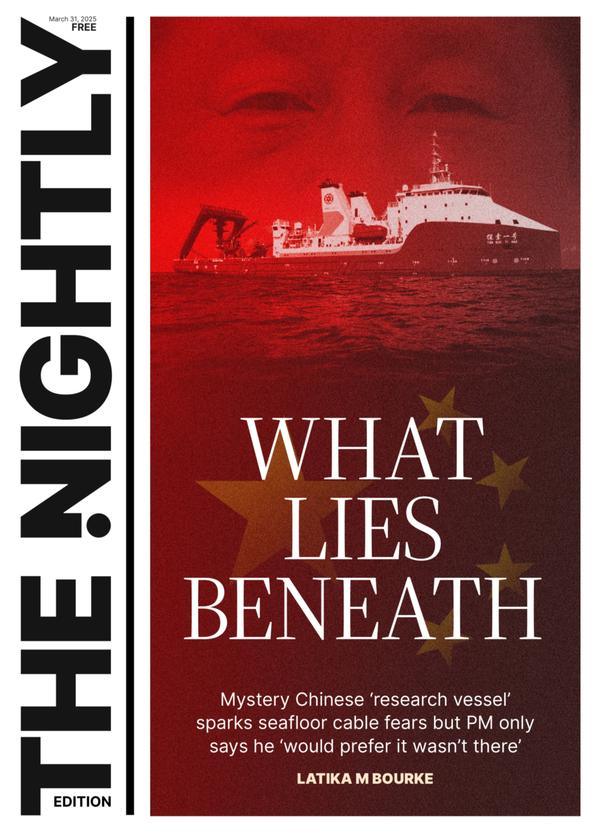My life was a mess so I quit my job to become a Marie Kondo-trained organiser—I have no regrets

The spring of 2016 was a perfect storm. I dealt with a deteriorating relationship with my live-in boyfriend; a prestigious, high-pressure public health job I dreaded showing up for every day; and the death of a close friend.
My life felt like a giant mess. No wonder a tidying expert seemed like the right person to listen to.
For years, I’d helped my friends downsize their closets or rearrange their furniture, just for fun. I had a knack for assessing spaces and issues. I loved Marie Kondo’s book “The Life-Changing Magic of Tidying Up” because it added a practical and transformative spin to what I enjoyed doing in my free time.
Sign up to The Nightly's newsletters.
Get the first look at the digital newspaper, curated daily stories and breaking headlines delivered to your inbox.
By continuing you agree to our Terms and Privacy Policy.So when, in the midst of my burnout, Kondo announced she would train people in her organizing method, it felt like a sign to make a big change.
“Jenny-who-is-a-mess-right-now, you can learn how to tidy up your life once and for all,” I thought. I signed up for the course and, that summer, quit my job to focus on decluttering full time.
From clinics to closets, but still helping people solve problems
By the time I turned to professional organizing, I’d been cleaning up messes for nearly 20 years, usually the type brought on by bad policies or lack of funding. I worked for the U.S. government to design and manage women’s health and HIV/AIDS programs throughout Southern Africa, for example.
Sometimes it was great, like when I got to interview women to find out what they needed and then unravel red tape to establish more effective systems to serve their communities. Other times, my jobs felt tedious, demeaning, and stressful.
As a newly minted KonMari-certified organizer in 2016, I figured my work would be drastically different. I pictured myself chatting about sparking joy, thanking old books, and hauling away bags of goods.
But when I dove into this new role, I realized it was similar to and built on great parts of what I’d been doing. My new clients were desperate to feel better. They felt smothered by stuff they didn’t want, unequal domestic workloads, misaligned priorities, and jobs that zapped their energy.
Most importantly, I fought against the mindset that I realised had been ingrained in me, one that equated my professional worth with a particular salary.
I felt so fulfilled using my existing skills to help them solve problems and make things better.
I wasn’t working in hospitals and clinics anymore, but I was still interviewing people to find out what was going wrong and helping them set up new systems, ones that could help them lead healthier and happier lives.
Emotionally, I knew that leaving my public health job was the right decision. Still, the financial switch was tough. I’d been making a six-figure salary with benefits. Suddenly, as a new entrepreneur, I found myself struggling to pay my bills.
In my first year of business, I earned less than a quarter of my public health salary. I no longer had employer-sponsored health insurance, and my new marketplace plan cost more than $300 per month.
At least I’d made sure to save up more than six months of living expenses before I quit.
Early on, I took out a low-interest Home Equity Line of Credit on my condo. I accepted other kinds of work when I needed it, such as picking up shifts at the front desk of a local yoga studio. I consulted on public health assignments, and even temporarily took another full-time public health job while I continued building the decluttering business on evenings and weekends. All that helped.
Most importantly, I fought against the mindset that I realised had been ingrained in me, one that equated my professional worth with a particular salary.
In eight years of professional organising, I still haven’t matched the income I left behind. But it doesn’t matter. I’ve found something richer. I traded in a paycheck that looked a certain way for a career that offers me more freedom and sparks more joy.
As hard as the career transition was, it turned out to be the best decision I’ve ever made. I love working with my clients.
I reimagined success as I increased my client roster each year, expanded my offerings to include corporate workshops, and wrote a book that draws on my expertise in public health and organizing.
Sharing my career change experience with clients is one way I hope to help them see that, yes, we can create a new story for our futures, on our own terms.
